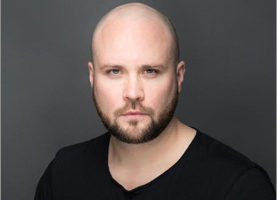If a gene editing technique could be utilized to knock out genes known to cause life-threatening diseases, would you find yourself facing a moral dilemma, wondering if it was the right thing to do? What if a gene editing technique could be utilized to design a baby to have green eyes and black hair, or superior intelligence? For many people, the first question poses only a small or no moral dilemma at all, while the second may present them with a much more significant one.
As the head of the division of medical ethics at the New York University School of Medicine in New York City, Arthur Caplan has been involved in the field of bioethics for many years, but only in more recent years has he been faced with a need to consider these questions. In addition to exploring the bioethics of genetic engineering, he discusses his perspective on vaccines, issues concerning the control and protection of genetic information, and health care costs.
Tune in for all the details and find him on Twitter at @ArthurCaplan.
Richard Jacobs: Hello, this is Richard Jacobs with the future tech and future tech health podcast. I have Arthur Caplan. He is the head of the division of medical ethics at the NYU School of medicine in New York City. So, Arthur thank you for being here.
Arthur Caplan: Thanks for having me.
Richard Jacobs: It looks like you had a long history in bioethics and ethics as it relates to medicine and various procedures. What’s your current work or your current study focused on?
Arthur Caplan: Well, one of the things paying close attention to right now is developments in genetics, particularly the emergence of genetic engineering of cells, human embryos, animal cells. That’s a very hot topic. A lot of benefits coming in terms of therapies and cures for genetic diseases, but many, many ethical questions and dilemmas. Certainly paying attention to the high cost of health care. Why medical cost out of control and what can we do about that? And I have a keen interest in vaccines and is probably many listeners know. There’s been a lot of arguing lately about mandating vaccination and outbreaks of smallpox and so on.
Richard Jacobs: If you don’t mind, maybe we can start with vaccines. I know there are anti-vaccine people and then there’s a lot of back and forth, but what about mandating people get vaccines for certain things like smallpox. I had seen like a Ted video on it, that is something called the herd immunity that’s required in order to STEM the spread of things like smallpox. Can you go into what’s involved and the required vaccinations?
Arthur Caplan: So in order to really get the maximum benefit from vaccination, you need to secure a high rate of participation. And the reason that so is even though the vaccine isn’t a hundred percent effective in everybody, so you could have a lot of folks getting vaccinated, but they still could get measles, maybe two or 3% of them. But if everybody vaccinates the ability of the smallpox virus to jump from person to person is greatly diminished. So probably you’re talking about watching for 95, 96% participation rates to really do the best job and preventing measles outbreaks. And that’s what we call herd immunity. It’s also dangerous to have pockets of people say a particular religious group doesn’t want to vaccinate. They all live together in the same town. Not only are they putting each other at risk, but outbreaks can occur there. They can pick up steam and spread out fast if vaccination rates are high. So I do favor some forms of mandatory vaccination. I’ll give you two examples. One is for kid’s measles, going back to school, I would vaccinate every kid except for those who medically have a known problem that either makes them not able to respond to vaccines or might put them at greater risk of a health consequence. Getting a reaction to say to egg protein or something like that. Vaccines are very safe. They don’t cause autism. But there are people who do get reactions. So you want to minimize that. And doctors can exempt people, but not religious exemptions. Those philosophical objections not, I don’t like it not, I don’t want to. Putting the whole population at risk of getting measles when spreading measles is a too big danger. So I think people have to give up some of theirs, if you will, freedom in order to protect everybody else. And one more point, remember there are a lot of kids out there and adults who have diseases. Say they have HIV or they got an organ transplant or they’re getting cancer therapy. They can’t vaccinate, their immune systems are weak. The only way to protect them against measles is for everybody else to vaccinate. So they don’t spread it.
Richard Jacobs: If someone gets vaccinated, can they still acquire enough measles to pass on to someone else even though they themselves may not get sick.
Arthur Caplan: You could be a carrier and here’s how that might happen. You might be infected just a few days before the time that you get your shot. And if that happened, you could still be spreading the disease even though your symptoms may not be bad yourself. You might be able to spread it to others.
Richard Jacobs: Okay. But once you’ve been vaccinated, you cannot be a carrier, not enough will build up in your system.
Arthur Caplan: Basically, once you’re vaccinated, your body is going to kill off the viruses that are in your body. So you can’t really spread them. But remember, you could get the disease a few days before and not be aware of it. That’s really one of the problems we have when people say, hey, you know, I got vaccinated and then I still got the measles. Well, or the flu or whatever. Sometimes it’s because you got the shot just as you were getting the disease.
Richard Jacobs: I remember I had my measles mumps rubella. What about the flu? Flu seems to have so many strains and it changes every year. Is that a smart thing to vaccinate for that or no?
Arthur Caplan: It’s still smart to vaccinate for flu, but it isn’t as good as a vaccine, not nearly as good as the measles mumps rubella vaccine, which really works pretty well. You know, high success. Only two or 3% of people get sick compare that. But with the flu boy, you could get 40% of people who get the flu anyway. So what I tell people is, look, it’s better to reduce the risk even if it’s only by half. You still don’t want the flu. And even if you don’t avoid getting the flu, what we know is the flu vaccine helps in that the flu isn’t as bad. If you’ve had the vaccine, maybe your body doesn’t build up complete resistance, but even partial resistance makes you less sick, matured, and able to go back to work sooner. So that’s a real benefit that we sometimes underestimate because we sometimes just count who got the flu. If you are getting the flu, which is really, I’m in bed for four days and I feel horrible. And then there’s getting the flu where it makes him pay me. But it’s not that terrible.
Richard Jacobs: Right, exactly. Yeah. Any new vaccinations that are being developed or old conditions that we thought were eradicated but now needs to be washed out for?
Arthur Caplan: Yeah. So what exciting one is the Ebola vaccine. We’ve got this outbreak that took place in the Congo, a democratic Republic of Congo, and it’s still raging there. And we had an Ebola outbreak in sort of Southwest Africa, Liberia, Sierra Leone, a couple of years back, didn’t really have a vaccine, but we’ve got at least two that looked very, very promising. Two companies work, and J and J both have them. They look safe, they look like they work. We just got to make them in amounts that are big enough to vaccinate millions of people. But that’s very, very exciting. Getting rid of the risk of Ebola more in Africa that would be for North America, but getting rid of that disease and the deaths and the hospitalization and the fear, that’s a major, major breakthrough. One other interesting area is there a vaccine starting to appear that might be useful against cancer. We don’t normally think of cancer is caused by a virus, but we do have this HPV vaccine that’s around and people aren’t using it as much as they could, but cervical cancer is caused by a virus and that vaccine also works pretty well. So going after it and really letting young men and women benefit. The men are carriers, the women get cervical cancer. And you know, we had something like 3000 deaths last year in the US and maybe 25,000 cases where people had to have a hysterectomy because they had cervical cancer. It’s all preventable.
Richard Jacobs: At what age would people get the HPV vaccine?
Arthur Caplan: So the problem with the HPV vaccine is we don’t know how long it will last. And you want to get the vaccine so that you get the maximum use. That virus is transmitted by sexual contact. So normally you want to try and vaccinated at ages 10 11 or 12 not because you’re going to be sexually active at that point, but you want to get ahead of sexual activity. And we know for a lot of young women and men that might start in high school, so that’s the age 10, 11, 12 when people start thinking about getting vaccinated and we know that the vaccine is protective for at least 15 years. That’s as long as that’s been studied. So that should take you through the high-risk period.
Richard Jacobs: Yeah, that makes a lot of sense. Is that a pretty common one that people ask their doctors? They should have some knowledge of?
Arthur Caplan: Yes. So you really should ask your doctor if you’re a young person or if you’re a parent of teenagers, how do we get this? It’s, I still think requires three shots, although there is research trying to bring that down to two or one shot, which would be great because everybody forgets to come back the second and third shot. It’s hard. I get that pain in the neck and the vaccines are better and stronger than they were even seven or eight years ago. So a lot of good research is produced, more powerful preventative vaccines, and again, they may last a lifetime. It’s just that they’re so new that no one’s been around a lifetime to be sure that we know that they do.
Richard Jacobs: That makes sense. Briefly, in the gene-editing sphere, I’m hearing a lot of news about CRISPR, CAS 9, allowing possibly for, you know, so like the genes that we knocked out, genes to be edited. What are some of the ethical issues around gene editing, gene therapy?
Arthur Caplan: So there are two things you could edit with gene engineering. One is you get in its elves in a person’s body and try to get rid of the ones that are damaged, say with sickle cell or cystic fibrosis, but those wouldn’t be passed onto their kids. Those cures. Then you could try to edit an embryo and say, I’m going to get sickle cell or cystic fibrosis out of this embryo. I’m going to repair it. And once you change that, if it’s in an embryo, it’ll be passed on to the descendants of the embryos. So that’s all good. Bad news is though, people start to think, Hey, maybe I could make a smarter kid or a stronger kid or a taller kid. And I think that’s a big fear that it’s one thing to use gene editing when you’re chasing diseases, which I support. It’s a very different thing to use them for eugenic or enhancement or improvement when it’s not clear that being taller has to be considered better or some of these other tastings that parents might bring to bear, it looks like a waste of resources.
Richard Jacobs: Well it seems like it’s one thing to restore someone to their phenotypically normal, take away cystic fibrosis and it seems to be less danger in doing that because you’re not altering what we know has worked for countless billions of people. But when you want to alter a person in such a way that hasn’t been seen, normally that’s like a whole new realm where it, biology has far more to it than we ever would have guessed. Then pretty dangerous to do something like that.
Arthur Caplan: Well I think you’re right. So a risk-benefit thing to try and get rid of say cystic fibrosis or Tay Sachs disease forever in a family given the horrors of those diseases. Yeah, you probably would do it saying to the doctor, please engineer my embryos so that my kids don’t have freckles. And you’re thinking about, Hey, I wonder if that could go wrong or could there be side effects? That’s not the kind of risk-benefit tradeoff I think medicine wants to be doing.
Richard Jacobs: Yeah, that makes total sense. I don’t know if through surveys or questions have science has been able to identify the most common things that people would want to alter in their offspring.
Arthur Caplan: Yes they have. So people are pretty comfortable with getting rid of diseases, terrible terminal illnesses. I think there’s a lot of support for that. Even though it makes people a little nervous to change genes that are going to be passed on to their kids and grandkids and into future generations. But if you could do it and you know that it works from animal studies and so on, that gets a lot of support. But then people start to say, you know what? I don’t like obesity. I don’t like fat people could that be eliminated? And that’s a popular one that people talk about. Some groups are keen to say, well, maybe I’d engineer out homosexuality. I don’t actually think that’s going to be possible because I don’t think it’s simple genetics that could be engineered that way that produces gender orientation. But you see it sometimes in polls, not a majority view, but it’s around and baldness. People mandate to be bald. You see that too.
Richard Jacobs: Right. So these are some of the issues. What’s you are going to be some of the first one, some of the most difficult issues that are coming out because of all the genetic engineering that they worked on?
Arthur Caplan: Well, I will say three things in the area of genetics. One is who controls your genes? We’ve seen lots of cases now where people sent off their DNA to one of these ancestry companies and the police are in there all of a sudden using that DNA to solve a crime. I’m not against solving crimes, but it isn’t clear that the companies can protect your data or your genetic information from access by not just the police, but who knows whoever or not that they’re going to sell it and make money that way. So I think control of that information is very, very likely to prove controversial. What’s allowed, what isn’t? Another is are people going to follow safety rules and not do anything to human embryos before we know if it works. We’ve already had a case out of China where somebody said they change human embryos already and I think most scientists would absolutely agree as that time to even try. Yet we don’t know the techniques well enough. So what are we going to do about the rogue guys and the bad guys? I think the other area that’s going to turn out to be interesting in genetic engineering is the cost. So we see some of these cures being developed, but we’re also hearing price tags like $2 million, one and a half million dollars. Well, developing genetic cures is great, but if no one can afford them, that’s not going to turn out to be so wonderful.
Richard Jacobs: That’s true. What about in the area of infertility? Seems a lot more mature than other areas and it seems like the number one place where gene editing want to go.
Arthur Caplan: I agree with you. And so infertility treatment has gotten to be a big business. It is often run now by investors and sort of people looking to make some money. So they’re pushing the idea that maybe you don’t have to be infertile to use an infertility clinic. If they could test your embryos, see what the traits are that might be produced or repair them or fix them or change them. And that’s the future. I think you’re going to see in vitro fertilization clinics and reproductive technologies start to be advertised and pushed not so much to people who can’t have babies. But under the idea that you want a healthier baby or maybe even a better baby. So that’s something to watch and maybe regulate that area as well. A lot of people are worried, they say, well, the government’s going to get involved with making perfect babies, but in the American context anyway, it’s more likely that big business is going to get involved in sewing that kind of approach.
Richard Jacobs: That makes sense. So what do you hope to influence through your position and your knowledge and background?
Arthur Caplan: Well, a couple of things. We have this program at NYU in bioethics and we do teach our medical students to get them thinking about these things, hoping that they’ll act responsibly and get their colleagues and peers to act responsibly when they go to work for industry or get out in the actual clinical setting. We publish tons and tons of opinion things, that kind of thing that we’re talking about here. We write about them and try and get these ideas about at least what to worry about in the hands of legislators in professional societies and journal editors. They play a big, big role in sort of controlling the pace of technology. It isn’t just having a lot, if somebody says our foundation isn’t going to fund that, that slows things down and if you say you can only do it with the right rules, that’s a way to influence what’s going on and then trying to communicate to the public through webinars, town meetings, let people get involved. One of the great areas that didn’t work out well for genetic engineering was GMO food. People got scared of it. The people who owned it, Monsanto sold it basically let people use more pesticide. It wasn’t very environmentally friendly and they did a horrible job communicating with the public. We don’t want to repeat that with genetic engineering for diseases.
Richard Jacobs: Yeah, exactly. Makes sense. Well, very good Arthur, unfortunately, we don’t have a lot of time today. What’s the best way for people to get in touch?
Arthur Caplan: The best way to communicate with me is Twitter. It’s just @ArthurCaplan, and direct message me or if you just want to follow the work we’re doing, that’s a great way to do it.
Richard Jacobs: Well, very good Arthur. Thanks for coming on the podcast. I appreciate it.
Arthur Caplan: My pleasure.
Podcast: Play in new window | Download | Embed











